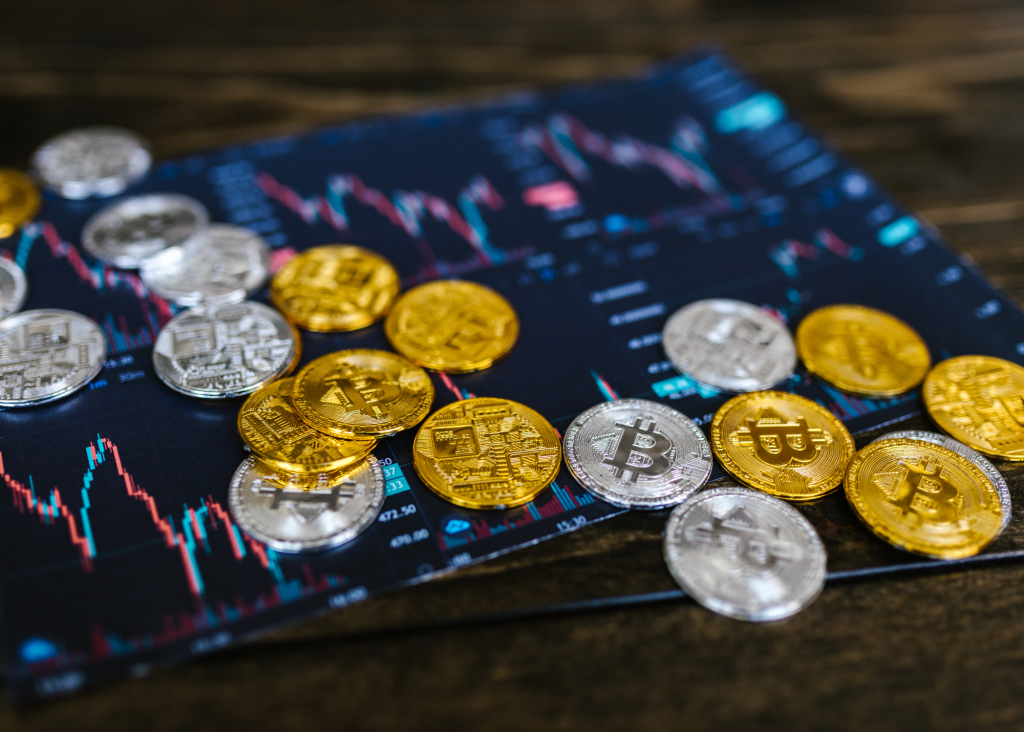Trading in the financial markets can be a profitable venture, but it’s also a complex one. Choosing the appropriate asset class to trade is one of the fundamental choices that traders must make. Whether you’re a seasoned pro or a beginner, selecting the best asset class for your trading strategy is crucial to your success.
Towards the end, I will also give some insights on determining which asset is the most appropriate for you to trade.
Stocks
Stock trading can be a means of investing your money and potentially growing your wealth over time. When you invest in stocks, you’re essentially buying a small ownership stake in a company, which means that if the company performs well and its stock price goes up, the value of your investment will increase as well.
There are several factors that can influence stock prices, and understanding these factors is important for investors. Firstly, a company’s performance, including its revenue, earnings, and growth prospects, can significantly impact its stock price. If a company is performing well and is expected to continue doing so in the future, its stock price will likely increase.
Secondly, economic indicators, such as inflation, interest rates, and GDP growth, can also impact stock prices. Economic conditions that negatively impact a company’s profitability can lead to a decline in its stock price. Trends within a particular industry or sector can impact stock prices, with companies experiencing growth expected to see their stock prices increase.
Furthermore, market sentiment, or the overall mood of investors, can drive stock prices up or down, with investor optimism leading to increased demand for stocks and higher prices.
Also, global events, such as natural disasters or geopolitical tensions, can lead to uncertainty and volatility in the markets, influencing stock prices.
Stock prices are also influenced by supply and demand dynamics, with more buyers than sellers leading to an increase in prices, and vice versa. This makes stocks an attractive asset class to trade.
Options
Options trading is a popular investment strategy that provides traders with the ability to profit from market movements without actually owning the underlying asset. Options give traders the right, but not the obligation, to buy or sell an asset at a predetermined price and time.
The two main types of options are calls and puts. Calls give the buyer the right to buy the underlying asset at a specific price, while puts give the buyer the right to sell the underlying asset at a specific price. Traders use options to hedge against risk, speculate on market movements, and generate income.

One of the key advantages of options trading is the potential for high returns. Options provide traders with leverage, allowing them to control a larger position with a smaller investment.
However, this increased leverage also comes with increased risk. It is important for traders to have a solid understanding of options trading and the associated risks before getting started.
Another advantage of options trading is the flexibility it provides. Options can be used in a variety of trading strategies, including straddles, strangles, and spreads. These strategies allow traders to profit in different market conditions, including bullish, bearish, and neutral.
Options trading requires a significant amount of research and analysis. Traders must consider a variety of factors, including market trends, volatility, and option pricing.
Successful options traders often have a strong understanding of technical analysis and use a combination of tools and indicators to make informed trading decisions.
Options trading is a popular investment strategy that provides traders with the ability to profit from market movements without actually owning the underlying asset.
While options trading can offer high returns and flexibility, it also comes with increased risk. Traders must have a solid understanding of options trading and associated risks before getting started. With the right knowledge and approach, options trading can be a valuable addition to any investment portfolio.
Futures
Futures trading can be a great way for investors to manage risk and potentially profit from market movements. Futures contracts are agreements to buy or sell an underlying asset, such as commodities, currencies, or stock indices, at a predetermined price and time in the future.
One of the benefits of futures trading is the ability to use leverage, which allows traders to control a large amount of the underlying asset with a relatively small investment. However, it is important to understand that leverage also increases the risk of loss.
To trade futures, you will need to open an account with a futures brokerage firm, which will provide access to the futures exchanges. The most popular futures exchanges are the Chicago Mercantile Exchange (CME), the New York Mercantile Exchange (NYMEX), and the Intercontinental Exchange (ICE).
Once you have an account, you can place trades on futures contracts using a trading platform provided by your broker. There are two main types of orders used in futures trading: a market order, which executes immediately at the best available price, and a limit order, which executes at a specified price or better.
It is important to have a clear trading plan and risk management strategy when trading futures. Due to the leverage involved, losses can accumulate quickly if a trade goes against you.
Traders should also be aware of the expiration dates of futures contracts and roll over their positions before expiration if they wish to maintain their exposure to the underlying asset.
Futures trading can be a powerful tool for investors seeking to manage risk and gain exposure to a wide range of assets. However, it is important to understand the risks involved and to approach trading with a clear strategy and disciplined approach.
Commodities
Commodities trade refers to the buying and selling of raw materials or primary agricultural products that are often used in the production of goods and services.
Commodities are classified into two categories: hard commodities, such as metals and energy products, and soft commodities, such as agricultural products like wheat and corn.
Trading commodities is not only limited to large-scale corporations, but also available to individual traders. Futures trading is a common way to invest in commodities.

A futures contract is an agreement between a buyer and seller to purchase or sell a particular commodity at a predetermined price and date in the future.
Trading commodities can be highly volatile, and prices can fluctuate rapidly due to global economic and geopolitical events. It is important for traders to have a solid understanding of market conditions and to stay up-to-date on relevant news and events.
There are also several factors that can affect commodity prices, such as supply and demand, geopolitical events, weather conditions, and government policies. Traders need to stay informed and adjust their trading strategies accordingly.
Trading commodities can offer traders an opportunity to diversify their portfolio and potentially profit from price movements in the market. However, it is important to remember that trading always carries a level of risk, and traders should approach commodities trading with caution and proper risk management strategies in place.
Forex
Forex, short for foreign exchange, is the global marketplace where currencies are traded. It is one of the largest and most liquid financial markets in the world.
The primary objective of forex trading is to exchange one currency for another, aiming to profit from the fluctuations in exchange rates. Unlike traditional stock markets, forex operates 24 hours a day, five days a week, spanning different time zones, making it highly accessible for traders worldwide.
Traders buy and sell currency pairs, which are composed of two currencies (the base currency and the quote currency). Traders speculate on the direction in which a currency pair’s exchange rate will move, either appreciating (rising) or depreciating (falling). They can profit from these price movements by going long (buying) if they believe the base currency will strengthen, or going short (selling) if they anticipate it will weaken.
Success in forex trading requires a combination of fundamental and technical analysis, risk management, and a deep understanding of the global economy and geopolitical events that influence currency values. Traders use various tools and strategies, including charts, indicators, and economic news analysis, to make informed decisions.
Cryptocurrency
Cryptocurrency trade has been gaining significant popularity in recent years. Digital currencies like Bitcoin, Ethereum, and Litecoin have seen massive growth and attracted many investors worldwide.
With the rise of cryptocurrency, a new form of trading has emerged – Cryptocurrency trading. Cryptocurrency trading involves buying and selling digital assets like Bitcoin, Ethereum, or other Altcoins on cryptocurrency exchanges.

The goal of trading cryptocurrencies is to profit from the fluctuations in their prices, which are highly volatile. Cryptocurrency traders use technical analysis and fundamental analysis to predict the market trends and make informed trading decisions.
One of the advantages of cryptocurrency trading is that it operates 24/7, unlike traditional markets. This means that traders can access the markets and make trades at any time of the day.
Another advantage is that cryptocurrency markets are decentralized, making them less vulnerable to government regulations and market manipulation.
To get started with cryptocurrency trading, one needs to select a reputable cryptocurrency exchange and create an account. It is essential to choose an exchange with a good reputation, as there have been many instances of hacking and scams in the cryptocurrency market.
Once you have created an account, you will need to fund it with fiat currency or cryptocurrency, depending on the exchange’s requirements.
When trading cryptocurrencies, it is important to have a sound trading strategy and risk management plan in place. Cryptocurrency markets are highly volatile, and prices can fluctuate rapidly, making it essential to be prepared for market volatility.
What Should You Trade?
Stocks are a great way to start trading if you are new to the world of trading. Stocks are ownership shares in a publicly-traded company, and when you buy a stock, you are essentially buying a small piece of that company. Stocks are easy to understand because they are a tangible asset and the factors that affect stock prices.
While foreign exchange (FOREX) and cryptocurrencies like Bitcoin and Ethereum can be exciting markets to trade in, they are extremely volatile and require a higher level of understanding and experience to trade successfully.
Currency prices can fluctuate rapidly due to a variety of macroeconomic factors, and cryptocurrencies are often subject to speculative bubbles and crashes. For new traders, it’s best to start with more stable markets and work up to trading in more volatile ones.
Options and futures are derivative markets that can offer high rewards for experienced traders who want to control their risk and generate a consistent income. I primarily trade these on a daily basis.
Commodities such as gold, oil, and wheat can be a great market to trade in, but they require a deep understanding of macro factors such as supply and demand, weather patterns, and global economic trends.
For experienced traders who have a solid understanding of the underlying factors that affect commodity prices, these markets can be very profitable.

